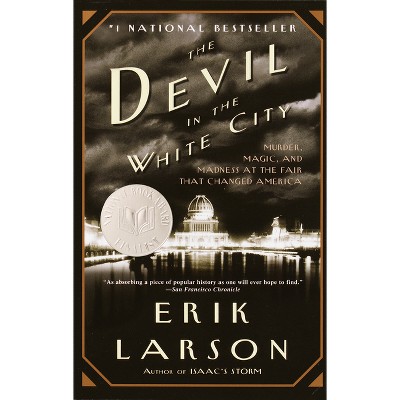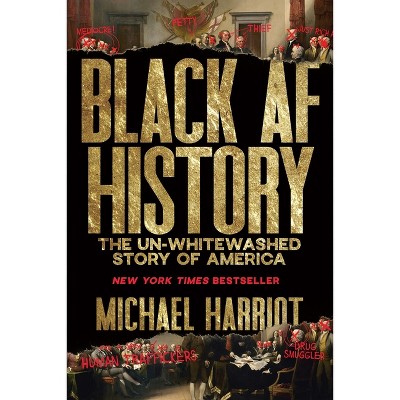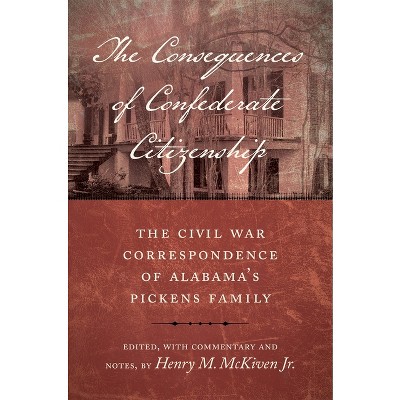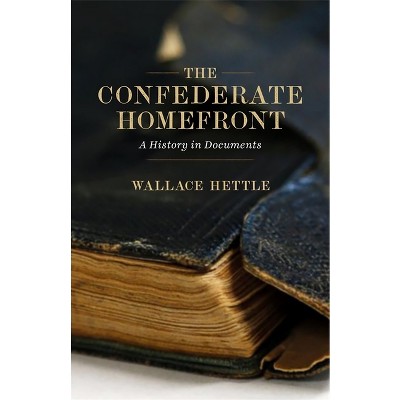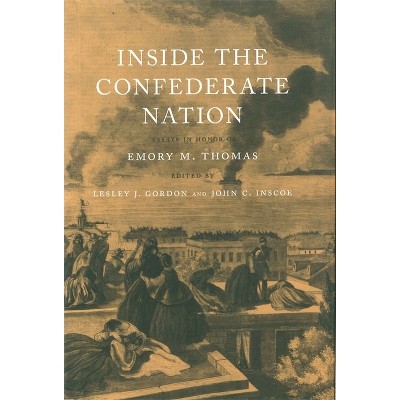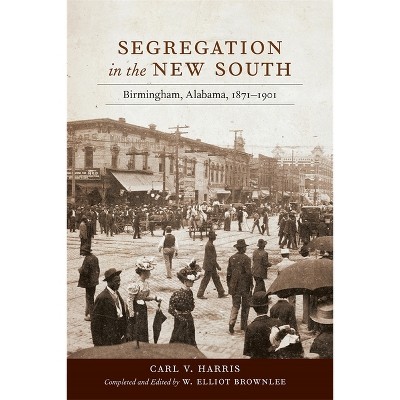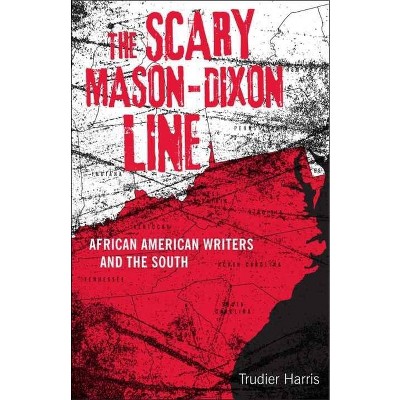About this item
Highlights
- Confederate Privateer is a comprehensive account of the brief life and exploits of John Yates Beall, a Confederate soldier, naval officer, and guerrilla in the Chesapeake Bay and Great Lakes region.
- About the Author: William C. Harris is professor emeritus of history at North Carolina State University and the author of numerous books on Abraham Lincoln and the American Civil War, including Two against Lincoln: Reverdy Johnson and Horatio Seymour, Champions of the Loyal Opposition.
- 200 Pages
- History, United States
Description
About the Book
""Confederate Privateer" is a comprehensive account of the brief life and exploits of John Yates Beall of Virginia, a Confederate soldier, naval officer, and guerrilla in the Chesapeake Bay and Great Lakes region. A resident of Charles Town, Virginia (now West Virginia), near Harpers Ferry, Beall was a witness and a militia participant in the trial of John Brown and his execution in 1859. Beall later signed on as a private in the Confederate army and suffered a wound in defense of Harpers Ferry early in the war. He quickly became a fanatical Confederate, ignoring the issue of slavery by focusing on a belief that he was fighting to preserve liberty against a tyrannical Republican party that had usurped the republic and its constitution. After recovering partly from his wound, Beall signed on with Stonewall Jackson's army. However, his weakened physical condition prevented him from joining the unit. Still seeking an active role in the Confederate cause, he traveled to the Midwest and then to Canada, where, among escaped rebel prisoners of war, he developed an elaborate plan for Confederate operations on the Great Lakes. After making his way to Richmond, Beall laid his plan before Confederate President Jefferson Davis and Secretary of the Navy Stephen Mallory, who commissioned him an acting master in the Confederate navy. Instead of the Great Lakes operation, Mallory authorized a small privateering action on the Chesapeake Bay. Led by "Captain" Beall, the operation damaged or destroyed several ships in or under the protection of the United States Navy. For his part in organizing the raids, Beall became known as the "Terror of the Chesapeake." After United States forces captured Beall and his men, the War Department prepared to try them as pirates, a hanging offense. When the Davis administration threatened to execute the same number of Union prisoners, Secretary of War Edwin Stanton backed down. Freed in a later prisoner exchange, Beall returned to the Great Lakes and organized another privateering operation. After some early successes on the water, Beall hatched a plan to derail a passenger train transporting Confederate prisoners of war near Niagara, New York. Captured before he could carry out the mission, the Union army charged Beall with conspiracy, found him guilty, sentenced him to death, and executed him. Harris's history of Beall offers a new lens on paramilitary efforts by civilians to support the Confederacy. It also sheds light on the South's secret operations in neutral Canada to thwart the Union. Though little remembered today, Beall was a famous and heroic figure in the Civil War South. Indeed, so much so that his execution was on John Wilkes Booth's list of reasons to assassinate President Abraham Lincoln. Based on exhaustive primary and secondary sources and placed in the context of more extensive Confederate guerrilla operations, especially in Canada, "Confederate Privateer" is sure to be of interest to Civil War scholars and general readers interested in the conflict"--Book Synopsis
Confederate Privateer is a comprehensive account of the brief life and exploits of John Yates Beall, a Confederate soldier, naval officer, and guerrilla in the Chesapeake Bay and Great Lakes region. A resident of Charles Town, Virginia (now West Virginia), near Harpers Ferry, Beall was a member of the militia guarding the site of John Brown's execution in 1859. Beall later signed on as a private in the Confederate army and suffered a wound in defense of Harpers Ferry early in the war. He quickly became a fanatical Confederate, ignoring the issue of slavery by focusing on a belief that he was fighting to preserve liberty against a tyrannical Republican party that had usurped the republic and its constitution.
Limited by poor health but still seeking an active role in the Confederate cause, Beall traveled to the Midwest and then to Canada, where he developed an elaborate plan for Confederate operations on the Great Lakes. In Richmond, Beall laid his plan before Confederate President Jefferson Davis and Secretary of the Navy Stephen Mallory. Instead of the Great Lakes operation, Mallory authorized a small privateering action on the Chesapeake Bay. Led by "Captain" Beall, the operation damaged or destroyed several ships under the protection of the U.S. Navy. For his part in organizing the raids, Beall became known as the "Terror of the Chesapeake." After Union forces captured Beall and his men, the War Department prepared to try them as pirates. But Secretary of War Edwin Stanton backed down, and Beall was later freed in a prisoner exchange. Organizing another privateering operation on the Great Lakes, Beall had some early successes on the water. He then hatched a plan to derail a passenger train transporting Confederate prisoners of war near Niagara, New York, but was captured before he could carry out the mission. The Union army charged Beall with conspiracy, found him guilty, and executed him. Harris's history of Beall offers a new view of paramilitary efforts by civilians to support the Confederacy. Though little remembered today, Beall was a legendary figure in the Civil War South, so much so that his execution was on John Wilkes Booth's list of reasons to assassinate President Abraham Lincoln. Based on exhaustive research in primary and secondary sources and placed in the context of more extensive Confederate guerrilla operations, Confederate Privateer is sure to be of interest to Civil War scholars and general readers interested in the conflict.Review Quotes
"Harris examines the raids, imprisonments, and 1865 execution of privateer John Yates Beall for his actions in Chesapeake Bay and in the Great Lakes during the Civil War. . . . William Harris has written a helpful update on Beall's life with this concise, engaging biography. Confederate Privateer should prove useful for those interested in Confederate irregular warfare, the Civil War on the Great Lakes, and Civil War jurisprudence."--Journal of Southern History
"Few southern rebels earned the wartime infamy of privateer John Yates Beall, whose clandestine attempts to liberate Confederate prisoners from Johnson's Island resulted in his late-war execution. In this gripping account, one of the Civil War's most careful and prolific historians pulls back the veil on the 'terror of the Chesapeake and Lake Erie.'"--Brian Matthew Jordan, Pulitzer Prize finalist for Marching Home: Union Veterans and Their Unending Civil War and coeditor of The War Went On: Reconsidering the Lives of Civil War Veterans
"John Yates Beall--planter, naval officer, privateer, and commando--finally gets his due in this thoughtfully written biography by acclaimed historian William C. Harris. As the Civil War proved, the South was full of determined people, and Beall, who died on the gallows for spreading the war to the North, was not (as friends said) 'one of the giving up kind.'"--Terry Alford, author of Fortune's Fool: The Life of John Wilkes Booth
"John Yates Beall's story is a fascinating Civil War tale, and no one tells it better than Harris, who enlightens us about just how significant a character Beall was for the Confederate war effort. With a deft pen and using colorful detail, Harris creates a luminous portrait that brings to life one of the war's most daring crusaders who ranks with Morgan and Mosby but who died on the gallows for his exploits."--Stephen D. Engle, author of Gathering to Save a Nation: Lincoln and the Union's War Governors
"The events recounted here provide the makings of a good spy novel: conspirators hoping to free rebel prisoners of war near the Canadian border, terrorists burning New York hotels, bandits robbing banks in Vermont, and pirates raiding a U.S. warship on Lake Erie by drugging the crew with tainted wine. Yet, this is not the stuff of racy fiction: these incidents happened. Through the story of John Yates Beall--one of the men behind Confederate terrorist plots in the upper North--William C. Harris acquaints us with one of the lesser-known areas of irregular warfare during America's Civil War."--William A. Blair, author of With Malice toward Some: Treason and Loyalty in the Civil War Era
About the Author
William C. Harris is professor emeritus of history at North Carolina State University and the author of numerous books on Abraham Lincoln and the American Civil War, including Two against Lincoln: Reverdy Johnson and Horatio Seymour, Champions of the Loyal Opposition.Shipping details
Return details
Trending History



